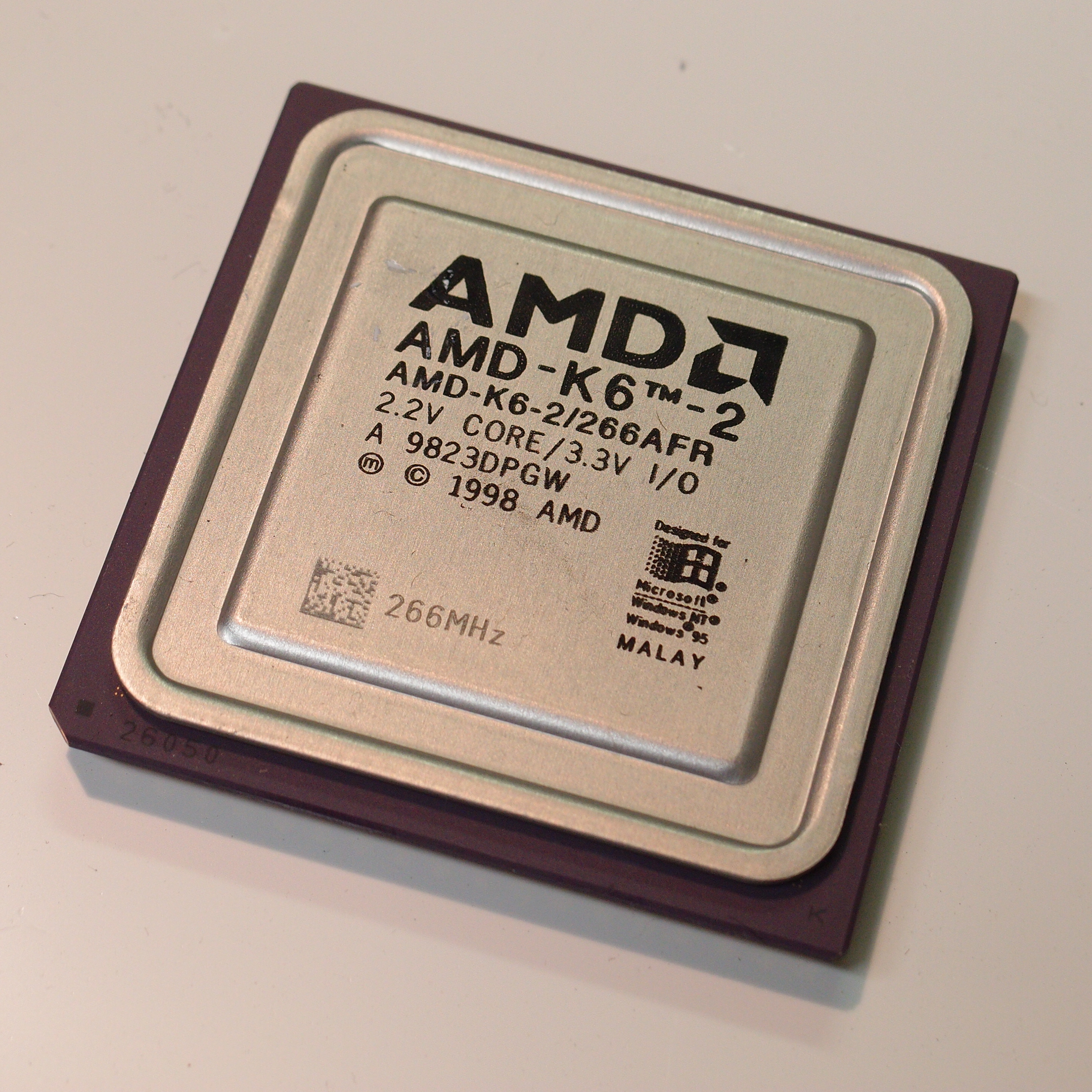I'd like to know what you read that suggests 1.55V is OK. Even the 1.5V guidance I've seen is that it's algorithm will push volts that high but for single core boosting to max clocks, which ONLY occurs in light 'bursty' loads (as they put it.) To put that in perspective, it will only do it for a few milliseconds at a time, when temperature allows and when one SINGLE core is seeing a processing transient that merits it. Those conditions are hopelessly impossible for us to replicate in an all-core overclock.
AMD's position on "what's a safe voltage limit" for all-core overclocking of Zen 2 has always been "leave it in Auto".
That K6-2+ processor used AMD's .18micron processing node... or .180micrometer feature size. I don't know if it's fair, but compared to 7 nm that would probably be something akin to comparing a 000 bus bar against a 20ga hookup wire. Major current carrying difference, and far, far, far more tolerance for electron migration to work it's evils without impact to conducting path integrity.
Ok, it has become apparent to me now that you think I'm talking about running my R5-3600X at 1.55V. I think that you only half-read my post and then went off in some crazy direction with it. I'll highlight the parts of my original post that made it clear I was talking about my R7-1700 and not my R5-3600X.
"As the previous answers said, those temps are more than fine.
I commonly run my R7-1700 with a 20% overclock (3600MHz) when gaming and I've had it since March of 2017 with no issues whatsoever.
I'm receiving my new R5-3600X today so I'll probably wait until motherboard prices come down and start playing with liquid cooling to see just how far I can push it at 1.55v.
Up to now, it has only ever used the enclosed Wraith Spire cooler."
#1 -
"I commonly run my R7-1700 with a 20% overclock (3600MHz) when gaming and I've had it since March of 2017 with no issues whatsoever."
- I was already talking about how I overclock my R7-1700.
#2 -
"I'm receiving my new R5-3600X today"
- This means that I hadn't yet received my R5-3600X at the time of the post.
#3 -
"Up to now, it has only ever used the enclosed Wraith Spire cooler."
- Since I hadn't yet received my 3600X, I'was clearly talking about my 1700.
So, as for where I got the idea that original Zen could handle 1.55V was here:
Since its release, the Ryzen 1700 have been getting overclocked out of the box. But there is one thing that has been unclear even with some research, the max temp. Most people say stay under about 80-85 degrees, but no exact answer. So i sent AMD and email about the R7 1700 (which is what i have) and overclocking. Here is the email they sent back
The maximum warrantied voltages are programmed into the CPU when it is made. The maximum temperature for Ryzen 7 1700 is 75C.
For overclocking, we cannot guarantee safe operation as this action voids AMD warranty. A voltage of up to 1.55v can be used but requires very robust cooling solution (liquid cooling is suggested).
Thank you for contacting AMD.
This is why I was talking about using liquid cooling at 1.55V, because it's what AMD themselves said to do.
Here's the link to the post:
https://forums.tomshardware.com/threads/psa-ryzen-r7-1700-official-max-temp-and-voltage.2981631/
As for the AMD K6, that was meant to make you laugh because it shows just how far we've come. That's why I had put this at the end of it:
NOW THAT'S JUST PLAIN CRAZY!!!! 
Now for some reason, the picture that I thought I'd posted didn't come up (doesn't matter, it was just a picture of an AMD K2) but it was for humourous effect, not because I was trying to justify pushing a 7nm CPU to 1.55V.
I flashed my ASRock X370 Killer SLI to accept the 3600X and I'll buy a cheap B350 board to use as the platform for my R7-1700 if and when I decide to see what it can actually do maxed out. Right now however, motherboards are too bloody expensive so I'll wait for their prices to come back down to Earth. As it turns out, the courier screwed up so I STILL don't have my R5-3600X. Grrr




